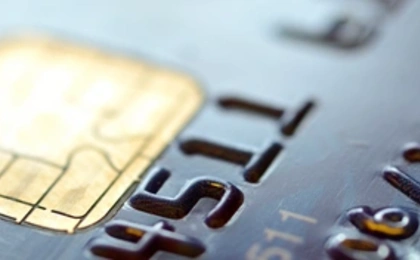When you’re preparing to apply for a mortgage, it’s normal to want to make sure you have the best chance possible of being accepted.
And, with the strict affordability checks that take place, it’s safe to say a credit card probably will have some effect on the outcome of your application.
However, that doesn’t mean it will stop you getting a mortgage. The lender’s decision depends on a number of factors, including how much room you have in your budget, how much you owe on the card, how long you’ve had it for, and how well you’ve managed it.
How much do you owe on your credit card?
Because a mortgage is such a big financial commitment, the lender must make sure you’re in the position to afford to repay it every month – even if your situation changes.
This is why they look at your income and outgoings in detail. They’ll look at how much you spend on everyday things, from your rent and food bills, to non-essentials like dining out and socialising. Of course, included in this is how much you pay each month to other lenders.
So, if you have a high credit card balance, you’re probably making higher payments each month to the provider.
Your mortgage lender will see this when you apply, and it may influence their decision to lend to you. In some cases, they may choose to decline your application if they don’t think you could afford to also make mortgage payments. Even if they don’t, they may decide to lend you less than you hoped.
If possible, aim to clear as much of your credit card balance as you can before you start the application for a mortgage. This could mean putting your plans to buy a home on hold and making large payments towards your debts for a few months, but it may well be worth it in the end.
Do you make your credit card payments on time?
This is another important factor that could seriously impact your chances of getting a mortgage.
When you miss a payment to your credit card balance, it damages your credit history, which may make it difficult to get credit in the future.
It’s vital that you make your payments on time each month – whether that’s for a credit card, loan, or even your mobile phone and utility bills. If you don’t, your mortgage lender may see these missed payments and worry that you’ll miss payments on your mortgage too. They could decide not to lend to you because of this, or offer you a card with a lower limit.
A good way to prevent this happening is to set up a Direct Debit to make at least the minimum repayment each month. This way, you’ll avoid missing a payment – as long as you have the cash in your bank account to make it – which means your credit history won’t be damaged.
How long have you had your card for?
You may not realise, but how long you’ve had your credit card for could affect your mortgage application as well.
If you’ve had the card for a while, perhaps a year or more, you shouldn’t worry about it being an issue. So long as the balance isn’t too high and you’re making monthly repayments that you can manage, the mortgage lender should be able to see this.
On the other hand, if you’ve only just got a credit card, you might want to hold off for a couple of months before applying. Lenders don’t like to see that you’ve got a lot of unused credit at your disposal, because this could, in theory, mean that you go on a spending spree on your credit card one day and then struggle to repay your mortgage.
Do you need a credit card to buy a house?
No, you don't need a credit card to buy a house. Many people buy homes without ever having one. However, having a credit card can sometimes make getting a mortgage easier.
When you apply for a mortgage, lenders check your credit history. This shows them how well you handle money and debt. Credit cards help build this history when you use them responsibly. Pay off your balance each month, and your credit score will improve.
A good credit score, alongside other factors like the size of your deposit, help you get better mortgage deals. This means lower interest rates and smaller monthly payments. Without any credit history, lenders might see you as risky. They could offer you higher rates or ask for a bigger deposit.
The key is showing lenders you're reliable with money. Whether that's through credit cards, other loans, or a steady income, what matters most is proving you can afford your mortgage payments.
Remember, credit cards are tools, not requirements for homeownership.
Zubin is a personal finance writer with an extensive background in the finance sector, working across management and operational roles. He applies his experience in customer communication to his writing, with the aim of simplifying content to help people better understand their finances.










